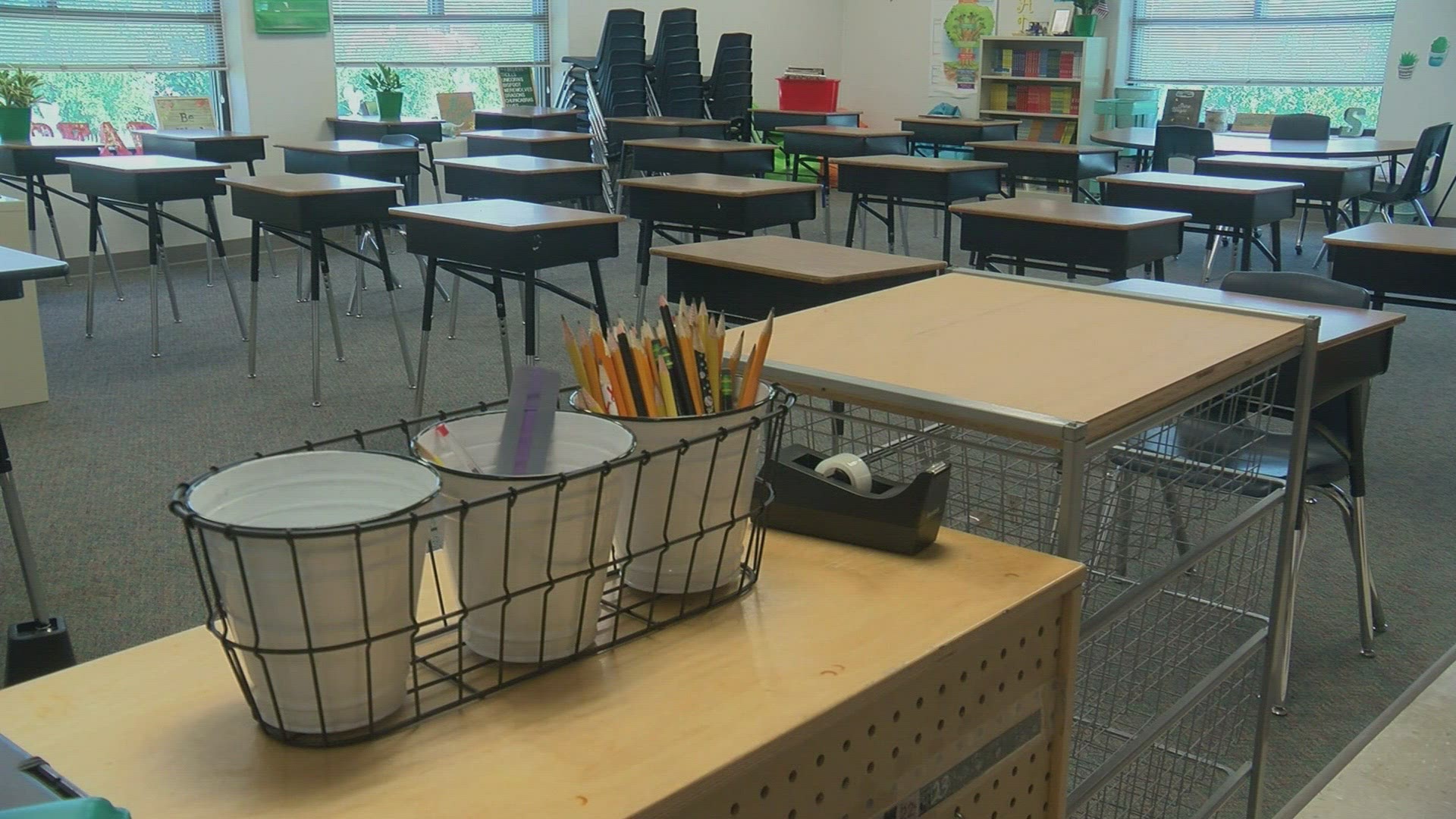AUSTIN, Texas — Students as young as 8 years old in Texas could be required to learn how to use bleeding control stations during a school shooting.
Currently, state law only requires students in the seventh grade and older to know how to use the stations, but that would change with a new proposed bill.
In either case, students can opt out of having to take the training.
"I don't want children exposed to this,” Cleo Petricek, co-founder, Save Austin Now, said. “I want them to be protected in a bubble, but that's not how it is in this country."
Petricek is also a mother of a 9-year-old and said, if House Bill 1147 passes into law, it could help save lives during a mass casualty event at a school.
"We need to be prepared for a mass shooting,” she said. “They are happening. And in my opinion, frequently in this country."
State Rep. Barbara Gervin-Hawkins, D-San Antonio, authored the legislation which would allow third-graders and older to be trained on how to use the bleeding stations. The stations contain supplies such as chest seals, compression bandages, and tourniquets.
"For tornado watch, they prepare children for a casualty, and the quicker that you respond to a gunshot and stop bleeding, the higher likelihood that you will save a life even if it has to be a child that's trained in this," Petricek said.
Dr. Christopher Hansen is a licensed counseling psychologist at Thriveworks in San Antonio.
"If we've gotten to the point where we need third-graders to treat traumatic gunshot wounds on other children, we really need to take a step back and look at that," he said.
Hansen said, while bleeding stations aren't a bad idea, he feels the bill could potentially have a negative impact on children’s mental health.
"We have thousands of veterans and first responders, doctors and nurses who do this professionally are trained to deal with it and, and they come up with a lot of problems, PTSD, anxiety, depressive disorders, et cetera as a result,” he said. “Why on earth would we do that to our children?"
Petricek pointed that that you can’t treat someone for PTSD if they are dead.
“We cannot live in a state of denial," she said.
Gervin-Hawkins said she understands the concerns about students being exposed to this kind of training.
“No student is required to take this training,” she said in a statement. “If a student or their parents are worried about the material, they can opt out. Secondly, students are already very aware of the prevalence of school shootings, giving them the tools necessary to stop the preventable death of a classmate is common sense."

